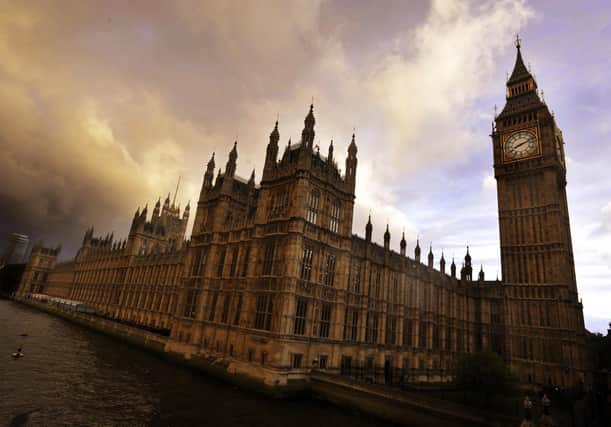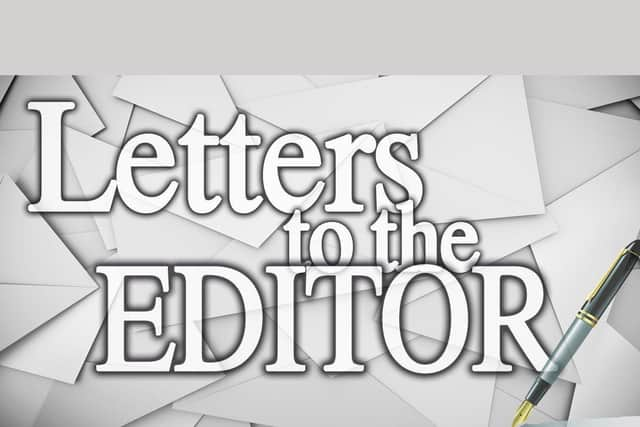Jamie Bryson: Westminster humble motion on Act of Union is just a piece of trickery


Today Parliament will consider a ‘humble address’ which seeks to legitimise the subjugation of the Acts of Union, by symbolically pledging allegiance to that which is subjugated. It is transparent Orwellian trickery, insulting to any intellectually honest unionist.
Rather than restoring the Acts of Union to their pre-Protocol status, by reversing the subjugation and suspension of Article 6, the DUP leadership and the government devoted significant time and resource (almost a quarter of the command paper) to contriving an argument whereby it would seem like Article 6 of the Acts of Union was being protected, when in fact they were embedding and legitimising its permanent recasting.
Advertisement
Hide AdAdvertisement
Hide AdSir Jeffrey Donaldson wrote a foreword endorsing my analysis on the Acts of Union in my constitutional law book, and the DUP – via the agency of their former leader Arlene Foster – were a party to the pan-unionist legal challenge.


The DUP’s first ‘key test’ was also “restoring our economic rights under Article 6 of the Acts of Union”. In a strange conjuring trick, the DUP – along with the Government – then came up with a convoluted argument whereby the economic rights under Article 6 meant something other than what Article 6 said. At its most basic, how can the rights conferred in Article 6 be extrapolated and be held to be something different from those words in Article 6 itself?
The inconsistency with Article 6 was held by the courts to be (i) the continued application of EU law; (ii) fetters on GB-NI trade; (iii) NI’s privileged position within the EU market. There is none of these issues resolved, and it is worrying the DUP are urging people to look the other way and pretend otherwise.
This is the DUP and government’s conjuring version of ‘the spirit the Belfast Agreement’, often deployed by nationalists, whereby the clear wording of the text is substituted for a more politically convenient interpretation, even one – as in this case – which is contrary to the words of the provision itself.
Advertisement
Hide AdAdvertisement
Hide AdThe most ludicrous argument was that (and Sir Jeffrey actually repeated this straight from the NIO playbook) ‘oh if we restored the Acts of Union, there would be tariffs on Bushmills whiskey’.
As if prior to the protocol’s subjugation and suspension of the Acts of Union, tariffs should have been applied to Bushmills whiskey, and no one had realised. These matters were resolved in 1879 in the Statute Law Revision (Ireland) Act.
The fundamental trick here is to interpret ‘restoring the Acts of Union’, as putting them back to 1801 (If that was so, we would have to lay claim to the 26 counties of Ireland), rather than simply putting them back to as they were prior to the constitutional vandalism caused by the Protocol/Framework.
All we sought was the Acts of Union to be sprung from subjugation and suspension, caused not by any tariffs in 1801, but from the Protocol and Framework which the DUP leadership now implement.
Advertisement
Hide AdAdvertisement
Hide AdOf course, to be convinced by the new argument you have to engage in intellectual dishonesty on an industrial scale (such as the Acts of Union section of the command paper) and pretend that the courts have not said what they said, or that they did not really mean what they said. Both those dishonest propositions can be definitively dismantled by reading the court judgments, particularly that of Lord Justice McCloskey in the Court of Appeal. This judgment was entirely untouched by the Supreme Court and remains law.
The command paper essentially urges the reader to set the Supreme Court judgment to one side, and instead invest themselves in the new argument developed by the DUP leadership and NIO, which resolves to basically urging unionists to accept the subjugation and suspension of the Acts of Union, on the basis that it never really meant what we thought it meant and we were all just confused (including the Supreme Court).
Indeed, despite Lord Justice McCloskey saying the intent of Article 6 was “unmistakable”, we are encouraged to believe that rather we have all led ourselves into error, and we should now believe something different.
The gaslighting moves to a new level when the command paper, endorsed by the DUP leadership, says that the Supreme Court didn’t consider any ‘inconsistency’ between Article 6 of the Acts of Union and the protocol. This is simply untrue (that is the most benign term I can use). Anyone can access the Supreme Court website and read the judgment. At paragraph 54 it points out how the High Court and Court of Appeal found the protocol was inconsistent with the Acts of Union and accordingly the Supreme Court did “proceed on that basis”.
Advertisement
Hide AdAdvertisement
Hide AdMost extraordinarily, given the command paper’s trickery, the government did not even contest before the Supreme Court the finding that the protocol conflicted with Article 6 which was subjugated and suspended. There was no cross appeal on this point, and indeed it was the government who argued that Article 6 was “subjugated”. The word was first used by senior Crown counsel for the government, and this argument succeeded.
It has been made clear in the published legal opinion of John Larkin KC that nothing in the Donaldson ‘Surrender Deal’ (my words) alters the Supreme Court ruling in the slightest, and thus Article 6 of the Acts of Union remains subjugated and in suspension.
The DUP leadership has been unable to produce much less publish one single legal opinion to contradict Mr Larkin. This is unsurprising, because so absurd is the argument they now make (which involves a volte face of epic proportions), there is no credible legal basis for it. It is a political argument, which is at variance with the legal reality.
A ‘humble address’ is legally meaningless. That it contains a commitment to the very Acts of Union which the government, aided now by the DUP leadership, have subjugated is even more insulting. This is perhaps the most dishonest and offensive aspect of the deal, and that is some achievement.
Jamie Bryson, JWB Consultancy,
Jamie Bryson is author of NI Constitutional Law handbook, with a foreword by Sir Jeffrey Donaldson, and ‘The Acts of Union’ with a foreword by Irish High Court Judge Richard Humphreys